In the world of nutrition, misinformation spreads faster than facts. Everyone seems to have an opinion about what you should or shouldn’t eat, especially when it comes to carbohydrates, fats, and sugars. But how much of that advice is actually true? From low-carb diets to sugar detox trends, the health and wellness industry has helped certain myths become mainstream beliefs.
In this blog, we’ll explore seven of the most common myths about carbs, fats & sugar — and explain the actual science behind them in simple, human language. Whether you’re on a health journey or just trying to make smarter choices, this information will help you separate truth from fiction.
Carbs, Fats & Sugar: 7 Myths You Still Believe — Debunked with Science!
Myth 1: Carbs Make You Gain Weight
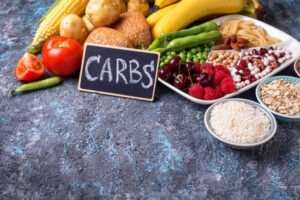
Perhaps the most popular myth of all time is that carbohydrates are the enemy of weight loss. But in reality, carbs are not inherently fattening. Weight gain occurs when you consume more calories than your body needs, regardless of whether those calories come from carbs, fats, or protein.
Carbohydrates are the body’s main source of energy. Complex carbs such as whole grains, fruits, vegetables, and legumes are full of fiber, vitamins, and minerals. They digest slowly, keep you full longer, and help regulate blood sugar levels.
Refined carbs like white bread and sugary snacks can lead to quick spikes in blood sugar and cravings, but that doesn’t mean all carbs are bad. The key is choosing nutrient-dense carbs instead of cutting them out entirely.
Myth 2: All Fats Are Bad for You
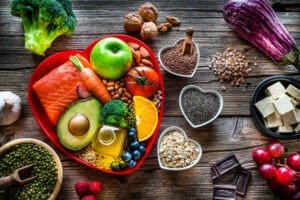
There was a time when low-fat everything ruled the grocery shelves. But nutrition science has since shown that fat is not the villain we once thought it was. In fact, healthy fats are essential for the body’s functioning.
Fats help in nutrient absorption, hormone production, brain health, and energy storage. The real issue lies in the type of fat you consume. Trans fats and excess saturated fats, often found in fried and processed foods, can raise LDL (bad) cholesterol and increase heart disease risk.
On the other hand, unsaturated fats found in nuts, seeds, avocados, olive oil, and fatty fish are beneficial and should be included in a balanced diet. Fat doesn’t make you fat; excess calories do.
Myth 3: Sugar Is Toxic and Should Be Avoided Completely

Sugar has become the new villain in many diet discussions. While it’s true that too much added sugar can lead to health problems like obesity, type 2 diabetes, and heart disease, eliminating all sugar is neither realistic nor necessary.
Natural sugars found in fruits, vegetables, and dairy products come with important nutrients like fiber, vitamins, and antioxidants. These don’t pose the same risks as added sugars found in soda, candy, and many packaged foods.
Moderation is key. Instead of focusing on cutting out all sugar, aim to reduce added sugars and choose whole foods over processed ones.
Myth 4: Low-Carb or Keto Diets Are the Only Way to Lose Weight
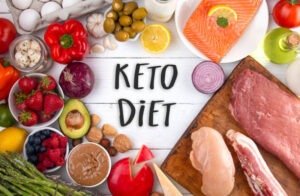
Low-carb and keto diets are popular for fast weight loss, but that doesn’t mean they’re the only effective methods. The reason these diets work for many is simple: they reduce overall calorie intake, often by reducing processed food consumption and increasing protein.
However, these diets can be hard to stick to long term and may not work for everyone. In fact, well-balanced diets that include healthy carbs, proteins, and fats have been shown to support sustainable weight loss and better overall health.
The most important factor for weight loss is finding a diet that fits your lifestyle and that you can maintain long term — not just cutting carbs.
Myth 5: Fat-Free Foods Are Always Healthier
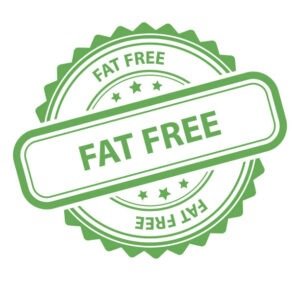
The term “fat-free” can be misleading. Many fat-free or low-fat products are high in added sugar, salt, or artificial ingredients to make up for the loss of flavor. In trying to eat “healthier,” you might actually be consuming more unhealthy ingredients.
Full-fat versions of foods like yogurt, milk, and nut butter often offer better satiety and a more natural nutrient profile. Rather than fearing fat, look at the whole food and its overall nutritional value.
Myth 6: Carbs Cause Diabetes

This is a dangerous oversimplification. Carbohydrates do affect blood sugar, but they don’t cause diabetes on their own. Type 2 diabetes is influenced by genetics, lifestyle, and overall diet. Eating too many refined carbs and added sugars over time can increase risk, but so can a sedentary lifestyle and being overweight.
In fact, complex carbs that are high in fiber can actually help regulate blood sugar and improve insulin sensitivity. It’s not about eliminating carbs, but choosing the right kind of carbs in the right amounts.
Myth 7: Natural Sugars Like Honey or Maple Syrup Are Better Than White Sugar

Honey, maple syrup, agave — these natural sweeteners are often seen as “healthier” alternatives to white sugar. While they may contain small amounts of minerals or antioxidants, they are still added sugars and should be consumed in moderation.
Your body metabolizes all sugars similarly, whether they come from honey or table sugar. So while a drizzle of honey on your oatmeal is fine, overusing any sweetener can still lead to weight gain and blood sugar spikes.
Focus on keeping total added sugar intake low, regardless of the source.
So, What Should You Eat? A Balanced Approach
Forget extreme diets or villainizing entire food groups. A balanced diet includes healthy carbohydrates, good fats, lean proteins, and a variety of colorful fruits and vegetables. Here are some practical guidelines:
- Choose whole grains over refined grains
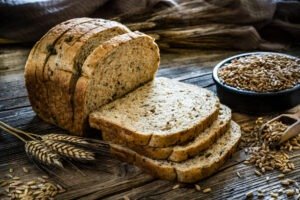
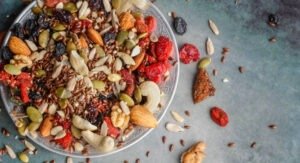
- Include healthy fats from nuts, seeds, olive oil, and fish
- Opt for natural sources of sugar like fruits
- Avoid ultra-processed foods as much as possible
- Don’t fear carbs or fat — just make informed choices
Nutrition Is Not One-Size-Fits-All
The truth is, everyone’s body is different. What works for your friend may not work for you. Instead of falling for viral diet fads or nutrition myths, listen to your body, stay active, and eat foods that make you feel energized and satisfied.
If you have medical conditions or specific dietary needs, consult a qualified nutritionist or healthcare provider for personalized advice.
Eating well doesn’t have to be complicated — just rooted in real food, moderation, and balance.
Stay connected with us for more such lifestyle related topics! Read the latest national and international news on Khabari Bandhu – Business, Education, Entertainment, Religion, Cricket, Horoscope and much more.
Top 10 Mental Health Books to Read on a Solo Trip – A Journey for Mind, Heart & Self
Chromotherapy Explained: Can Color Light Really Help Depression?

